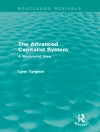The classical economic theory fails to truly describe the economies of prosperous societies. This is because traditional economics deals with the allocation of resources in conditions of shortage, while the urgent economic problems of a prosperous society are mainly associated with conditions of abundance.
This book presents the hallmarks of a prosperous society and analyzes the special problems that it faces. It differentiates between the two types of economies: the traditional one which is based on scarcity, and the prosperous economy which is able to fulfill almost everyone’s needs. The book analyzes what motivates these two types of economies, what challenges them, and what features or manifestations of success and failures characterize their current statuses and their futures.
This book is an original and pioneering work. It analyzes the economy of the prosperous society from the perspective of the third decade of the 21st century. It is an interesting, engaging text on a theme that we seldom see and read about.
Contents:
- Preface
- About the Author
- What Went Wrong with Economics?
- The Prosperous Society
- Technological Unemployment and the Quinary Sector
- The Dynamics of the Fifth Sector
- Utility and Happiness in a Prosperous Society
- Competition and Cooperation in Modern Economies
- Inequality in a Prosperous Society: Economic and Moral Aspects
- Reducing the Effects of Inequality
- Crises in Prosperous Societies: Are They Inevitable?
- Threats on the Prosperous Society
- The Future of Capitalism
- Index
Readership: Faculty members and students of economics, management, business administration, and social sciences in general. General readers who are interested in economics, economic crises, growth, prosperity, and the future of capitalism.
Key Features:
- The book discusses three relevant and valuable topics: proposed solutions to technological unemployment, the role of non-profit companies within profit-oriented capitalism, and the future of capitalism
- Particular features of a prosperous society are expected to draw much attention and discussion among its readers, enhance the understanding of its special problems, and inspire further research on the subject












